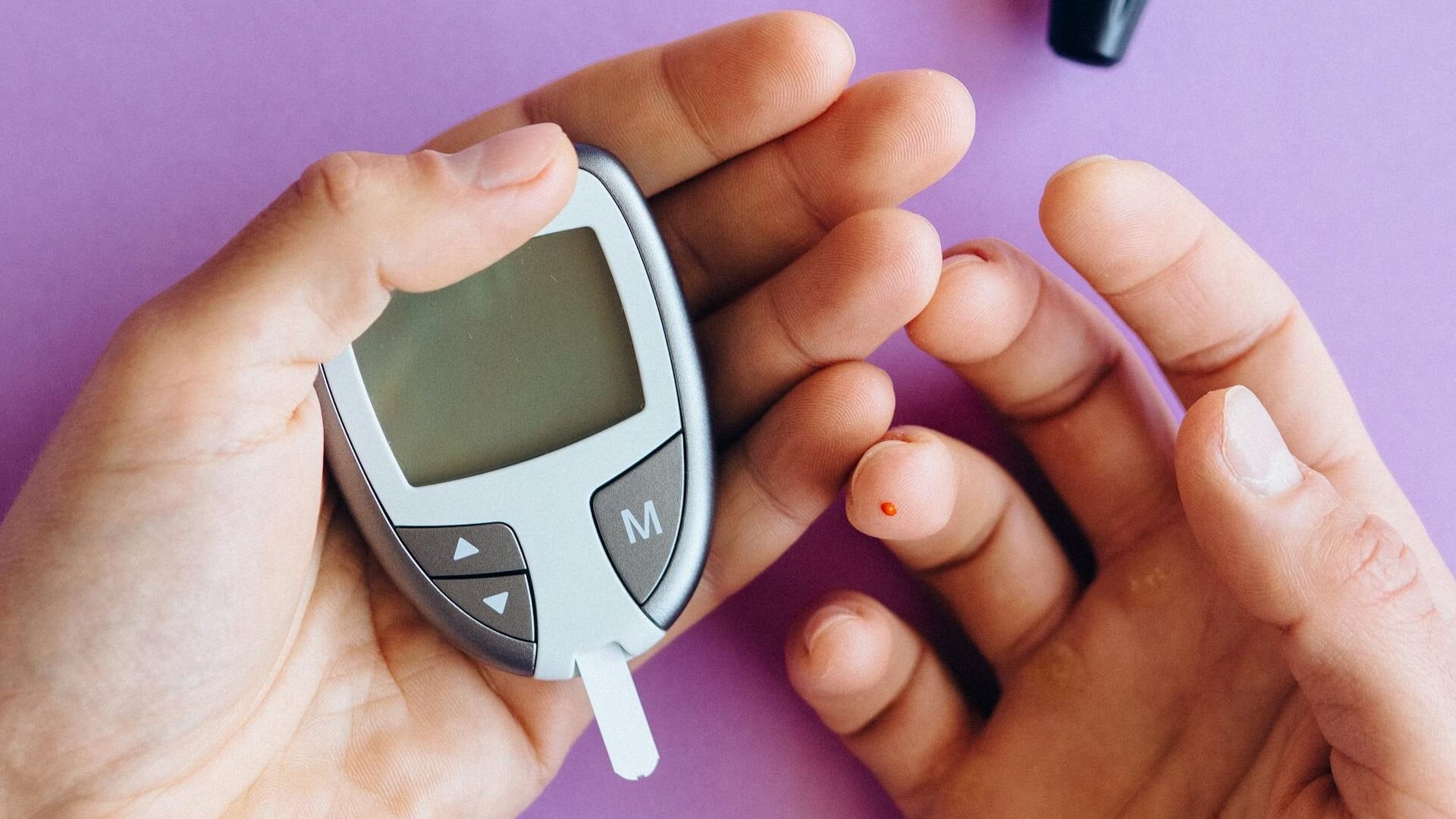You’ve probably heard of semaglutide, but what’s the buzz about? It’s all about insulin resistance, a key player in type 2 diabetes, and semaglutide’s potential role in tackling it.
Discover how this drug could be a crucial tool in your diabetes-fighting arsenal, possibly reshaping the way you manage your blood sugar levels. Your journey to a healthier life might just get a little easier.
The Role of Semaglutide in Insulin Resistance
Semaglutide has emerged as a promising agent in tackling the challenges of insulin resistance, a common adversary in type 2 diabetes. Understanding how semaglutide operates helps you appreciate its role in your diabetes management regimen. Its mechanism of action is twofold: it not only enhances your body’s response to insulin but also regulates the secretion of insulin itself.
The peptide-based drug mimics a naturally occurring hormone called glucagon-like peptide-1 (GLP-1), which plays a vital role in controlling blood sugar. By activating the GLP-1 receptors, semaglutide lowers blood sugar levels in a glucose-dependent manner. This means that it works more when your blood sugar is high, reducing the risk of hypoglycemia, a concern with other diabetes medications.
Key Benefits of Semaglutide:
- Promotes insulin sensitivity
- Stimulates insulin release when needed
- Delays gastric emptying
- Suppresses appetite
Clinical studies have underscored the efficiency of semaglutide in enhancing insulin sensitivity. It’s believed to influence the cells that become resistant to insulin, thereby improving their ability to absorb and utilize sugar from your bloodstream effectively. By doing so, semaglutide addresses the fundamental issue of insulin resistance.
Another aspect where semaglutide shines is its impact on weight loss, which by itself can improve insulin sensitivity. Weight management is integral for individuals with type 2 diabetes, and semaglutide provides a dual approach to support not just blood sugar control but also weight reduction.
Incorporating semaglutide into your diabetes care plan should be done in consultation with your healthcare provider. They’ll guide you on the appropriate dosage and monitor your progress, adjusting as necessary to achieve optimal results. Alongside its use, maintaining proper diet and exercise routines can synergistically enhance the management of your blood sugar levels.
Understanding Insulin Resistance

When you’re dealing with type 2 diabetes, understanding insulin resistance is crucial. Insulin resistance is a condition where your body’s cells don’t respond effectively to insulin, the hormone that regulates blood sugar levels. This leads to higher blood glucose levels because your body needs more insulin to make glucose available to cells.
Several factors contribute to insulin resistance, including:
- Genetics: Family history can play a part in your susceptibility.
- Obesity: Excess body fat, especially around the abdomen, is a significant risk factor.
- Sedentary lifestyle: Lack of physical activity can increase insulin resistance.
- Age: The risk increases as you get older.
- Hormones: Certain hormonal conditions can promote insulin resistance.
The relationship between insulin resistance and type 2 diabetes is a tightrope walk. As the body becomes more resistant to insulin, your pancreas tries to compensate by producing more insulin. Over time, this can overwork the pancreas, lead to beta-cell dysfunction, and eventually result in compromised insulin production.
Coupled with insulin resistance, the increased sugar in your bloodstream can trigger a cascade of health issues. You might experience symptoms like fatigue, hunger, brain fog, and high blood pressure. More importantly, if left unchecked, insulin resistance can pave the way for prediabetes and type 2 diabetes.
It’s imperative to address insulin resistance early on. Regular monitoring of blood sugar levels, alongside a balanced diet and consistent exercise, are foundational steps in managing this condition. Weight management plays a pivotal role too, as shedding extra pounds can significantly reduce insulin resistance. Adding medications such as semaglutide to your treatment plan may further help in enhancing your body’s insulin sensitivity and glucose regulation.
How Semaglutide Works
Semaglutide is a game-changer in the management of type 2 diabetes and insulin resistance. But you might wonder, how does it exactly work? At its core, semaglutide is a GLP-1 receptor agonist, which means it works by mimicking the functions of the naturally occurring hormone GLP-1 in your body.
GLP-1 or glucagon-like peptide-1 has a pivotal role in glucose metabolism. It enhances insulin secretion, suppresses glucagon release, and slows gastric emptying. All these actions help lower your blood glucose levels effectively. By acting on the GLP-1 receptors, semaglutide amplifies these beneficial effects, leading to improved insulin sensitivity and glucose uptake by the cells.
Another key action of semaglutide is its effect on appetite regulation. It makes you feel full more quickly and for an extended period which helps to decrease your calorie intake. This appetite suppression can lead to weight loss, an important factor in improving insulin resistance.
Semaglutide is usually administered once a week via injection, and its long-acting nature ensures a steady state of medication in your body, providing a continuous effect on blood sugar levels. Let’s take a look at some numbers:
| Semaglutide Effect | Timeframe |
|---|---|
| Improved Glycemic Control | 30 Weeks |
| Average Weight Loss | 12.9 lbs |
| Reduction in A1C levels | 1.5% |
The impact of semaglutide isn’t just limited to lowering blood glucose; it also protects your cardiovascular system. Studies have shown a decrease in the risk of major adverse cardiovascular events, a critical consideration for people with diabetes who are at increased risk for heart conditions.
Semaglutide has distinctly changed the landscape of diabetes treatment. If you’re considering this medication, it’s essential to discuss with your healthcare provider how it might fit into your overall diabetes management plan. Remember, individual needs vary, and treatment options should be tailored to your specific circumstances.
Research and Studies on Semaglutide’s Effect on Insulin Resistance

In the quest to combat type 2 diabetes, semaglutide has emerged as a valuable ally backed by scientific studies. You’re not just taking a shot in the dark with semaglutide; research underscores its effectiveness at improving insulin sensitivity.
A landmark clinical trial demonstrated that semaglutide significantly reduced A1C levels compared to placebo groups. In this study, participants who received semaglutide experienced an impressive average reduction in their A1C levels, illustrating the drug’s potential in glycemic management. But it’s not all about sugar levels; semaglutide also showed promising results in decreasing body weight, a pivotal factor in insulin resistance.
| Parameter | Placebo | Semaglutide |
|---|---|---|
| Average A1C Reduction | Minimal | Significant |
| Weight Loss | Less | More |
Notably, semaglutide’s impact goes beyond these metrics. It seems to improve the function of beta cells — the body’s insulin producers. This is critical because boosting beta cell operation can lead to long-term enhancements in insulin sensitivity.
Further studies have expanded on these findings. They’ve confirmed that semaglutide not only lowers blood sugar levels but also supports weight reduction and improves the body’s ability to use insulin more effectively. Researchers are keen on the fact that weight loss is a potent weapon against insulin resistance and semaglutide arms you with this tool through its appetite-regulating abilities.
Moreover, an analysis of various trials suggested that semaglutide could have cardiovascular benefits, marking its position as a multifaceted medication for diabetes care. The cardiovascular improvements noted could further influence overall health and glucose regulation.
Steering through this trove of data, it’s evident that semaglutide could be a turning point in your diabetes management strategy. As research continues to unfold, the role of semaglutide in treating insulin resistance becomes increasingly clearer, signaling hope for those striving to regain control over their metabolic health.
Semaglutide as a Potential Treatment for Insulin Resistance

When looking for treatments to combat insulin resistance, you’ve likely come across a range of options, but one that stands out is semaglutide. Semaglutide is not just any medication; it’s a GLP-1 receptor agonist that targets the underlying issues commonly associated with type 2 diabetes, including insulin resistance.
Firstly, it’s essential to understand how semaglutide works within your body. Upon administration, it mimics the incretin hormone GLP-1, which has a key role in regulating blood sugar levels. This leads to a decrease in gastric emptying and an increase in insulin secretion, only when blood sugar levels are high. With these mechanisms at play, semaglutide has more than a fleeting impact on your daily glucose management.
Clinical studies have been instrumental in showcasing semaglutide’s effectiveness. A pivotal trial reported not only a significant reduction in A1C levels but also a noticeable decrease in body weight. This is particularly compelling because weight loss often goes hand in hand with improved insulin sensitivity, striking at the heart of insulin resistance.
In the table below, you can see the A1C reduction and weight loss percentages reported in this study:
| Metric | Percentage Reduction |
|---|---|
| A1C Levels | 1.5% |
| Body Weight | Up to 6.5% |
Beyond glucose control and weight management, semaglutide’s influence extends to beta cell function. These cells are responsible for producing insulin in your pancreas, and the drug helps to preserve or even restore their function, providing a long-term boost to insulin production and sensitivity.
Moreover, with heart disease being a significant concern for those dealing with insulin resistance, semaglutide’s cardiovascular benefits cannot be overlooked. By improving various markers like cholesterol levels and blood pressure, semaglutide positions itself as a multifaceted weapon in the ongoing battle against insulin resistance and its complications.
Remember, while data points towards the benefits of semaglutide in treating insulin resistance, it’s vital to consult with your healthcare provider about the suitability and potential implications for your specific medical condition.
Frequently Asked Questions
What is semaglutide?
Semaglutide is a GLP-1 receptor agonist medication used to treat type 2 diabetes. It works by mimicking the effects of the incretin hormone GLP-1, which helps reduce blood sugar levels.
How does semaglutide help with insulin resistance?
Semaglutide improves insulin resistance by slowing gastric emptying, stimulating insulin secretion, and enhancing beta cell function, which improves the body’s ability to use insulin effectively.
Can semaglutide aid in weight loss?
Yes, clinical studies have shown that semaglutide can promote significant weight loss by reducing appetite and caloric intake, which is beneficial for individuals with type 2 diabetes and insulin resistance.
What are the cardiovascular benefits of semaglutide?
Semaglutide has been found to improve cardiovascular health by lowering cholesterol levels, reducing blood pressure, and potentially decreasing the risk of major cardiovascular events.
Should everyone with insulin resistance use semaglutide?
Not necessarily. While semaglutide can be effective for many individuals, it is important to consult with a healthcare provider to determine if it is appropriate for your specific medical condition and treatment goals.
Does semaglutide have any long-term effects on insulin production?
Semaglutide has been shown to enhance beta cell function, which can lead to long-term improvements in insulin production and sensitivity, though individual results may vary.
Conclusion
Semaglutide appears to be a promising ally in your fight against insulin resistance. Through its GLP-1 receptor agonist action, you’re not just looking at lower A1C levels but also at the potential for weight loss and improved beta cell function—all critical in managing your condition.
Remember, while the benefits are clear, this medication’s suitability should be discussed with your healthcare provider. They’ll help tailor a treatment plan that’s right for you, considering the full spectrum of your health needs.



